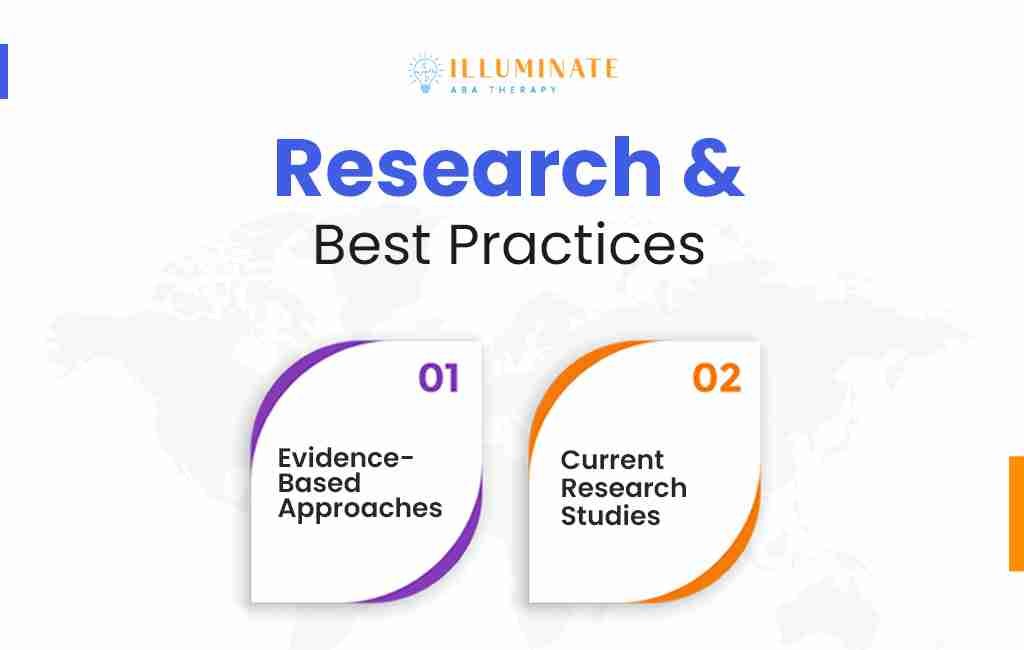Unveiling ABA Therapy Publications in Colorado: A Must-Read
ABA TherapyJuly 17, 2025

Understanding ABA Therapy in Colorado
So I'm getting into the nitty-gritty of ABA therapy in Colorado, and it's pretty important to get the basics of Applied Behavior Analysis (ABA) right. We're going to take a look at what ABA therapy is all about and what kind of programs you can find in Colorado.
Applied Behavior Analysis Overview
Applied Behavior Analysis (ABA) takes this straightforward way of using behavior principles to boost positive, useful behaviors and cut down on the ones that aren't so great. It's a big deal for helping folks with autism spectrum disorder (ASD) and other developmental challenges. Basically, ABA focuses on changing behavior to make communication and social skills better, while making life a bit easier.
ABA therapy isn't a one-size-fits-all deal; it’s all about what each person needs, looking at what they're good at and what they want to work on. Sessions are organized, rely a lot on data, and are often one-on-one because personal attention is key to seeing those light bulb moments take shape.
For anyone thinking about ABA therapy for their kids or students, knowing the ins and outs of ABA can be super helpful in choosing the right path to take.
ABA Therapy Programs in Colorado
Colorado has a bunch of ABA therapy programs to fit the unique needs of those seeking ABA help. One standout program is run by the University of Colorado Denver. They're pretty on it when it comes to training in ABA.
The Master of Arts in Special Education with a focus on ABA at the University of Colorado Denver is well-known for getting folks up to speed with top practices in ABA in different environments. This program offers seven courses in ABA, a couple of electives, and some on-the-ground work experience, prepping grads for the Board-Certified Behavior Analyst (BCBA) exam (University of Colorado Denver).
When someone wraps up their MA in Special Education with an ABA focus at CU Denver, they've got what they need to take the BCBA or BCaBA exam, as outlined by the Behavior Analyst Certification Board® (BACB). The teaching staff at CU Denver are not just book-smart but also real go-getters in the special ed field, working at different levels from local to international (University of Colorado Denver).
To hop onto this MA program with an ABA focus at CU Denver, you’ll need a bachelor’s degree from a recognized institution. Plus, there's a hands-on practicum part where you need to get a practicum site approved to clock the required hours for specific activities (University of Colorado Denver).
Getting a grip on how ABA therapy works and what the programs in Colorado offer helps parents, teachers, and anyone else interested in ABA make well-informed choices for aiding the development and happiness of those they care about.
Pursuing ABA Therapy Education
So, I've been thinking about beefing up my expertise in ABA therapy, and taking a closer look at some specialized educational paths seems like a solid move. The big hitters when it comes to ABA education? Special Ed Master's programs and getting that coveted BCBA certification.
Special Education MA Programs
First stop on the ABA train in Colorado: Special Education MA programs, where you can focus on Applied Behavior Analysis. The University of Colorado Denver's got this neat Master of Arts in Special Education where ABA takes center stage. It's all about getting you ready to rock in a bunch of settings (University of Colorado Denver).
Finish this program, and you walk out with a shiny Master of Arts degree, plus those vital supervision hours and real-world experience you need to go for the Board-Certified Behavior Analyst (BCBA) exam. You gotta start with a bachelor's degree from a legit institution and meet practicum hour requirements at those approved sites before you get the green light (University of Colorado Denver).
BCBA Certification Requirements
Getting BCBA certified or becoming a Board-Certified Assistant Behavior Analyst? That's like the gold standard, but there's a checklist. The Special Education MA program focused on ABA at CU Denver lays down the base and hands-on know-how to help you ace that BCBA exam. The whole shebang — training and coursework — primes folks to use ABA techniques to lend a hand to folks with autism and other developmental bumps in the road.
And hey, ABA service reimbursement rates are pegged to CPT codes, so you won't be shortchanged. There's also more buzz about ABA in the private equity circles, which just goes to show skilled pros in this field are in hot demand (Center for Economic and Policy Research).
Taking advantage of MA programs in Special Education and nailing those BCBA certification requirements sets you up for a rewarding career in ABA therapy, letting you make a real difference for people with autism and their families.
Resources at University of Colorado Denver
When it comes to getting serious about Applied Behavior Analysis (ABA) in Colorado, the University of Colorado Denver ain't just any stop—it's the destination. Let me fill you in on the ABA concentration at CU Denver, including some bits about the people running the show and the various twists and turns the program offers to suit your career dreams.
ABA Concentration at CU Denver
At CU Denver, they’ve got this slick Master of Arts in Special Education packed with a juicy ABA concentration. This program shapes up pros who know their stuff in ABA, covering a mix of places and spaces you might go to work. Students get a step-by-step guide through seven key ABA classes, a couple of elective courses, and even some time in the field, putting what they've learned to the test.
Finish this MA program, and you'll walk away not just with a degree, but also the hours and real-world chops needed to go for the BCBA or BCaBA exams, which the Behavior Analyst Certification Board® (BACB) handles. How quick you get through the ABA courses depends on your course load, but once you're through, you’re all set to meet the BACB's coursework needs for certification.
Faculty and Specializations
CU Denver's ABA gig is backed by a crew of top-notch faculty who are all about dishing out quality ABA smarts. These folks bring serious know-how and their own tales from the field, making sure students get a real handle on things.
Plus, students in CU Denver's ABA track can dig into different specializations within ABA, finding what clicks with their own interests and career dreams. It's like adding your own flavor to your education.
Don't forget JFK Partners—a big name in the mix. From the Department of Pediatrics in the CU School of Medicine, they’re the go-to for pushing ABA education and research further. Recognized as Colorado's University Center of Excellence in Developmental Disabilities and champions of the Leadership Education in Neurodevelopmental Disabilities (LEND) Program, JFK Partners is a big deal in channeling fresh ABA insights across Colorado.
Tapping into the ABA treasure trove at CU Denver is your ticket to getting a rock-solid grip on ABA theories and its hands-on stuff, setting you up for some serious success in the world of Applied Behavior Analysis in Colorado.
Research and Best Practices

As I keep exploring ABA therapy in Colorado, diving deep into what makes it tick is key—I'm all about cracking open those evidence-based approaches and the latest studies in this field.
Evidence-Based Approaches
ABA therapy shines because it's built on tried-and-true methods. Tons of research backs up how it helps folks with autism find their groove, focusing on boosting the good behaviors and cutting down the rough ones. The NCBI says most of the research on helping kids with disabilities circles back to ABA principles, showing just how critical evidence-based practices are here.
Therapists in ABA pull from a bag of strategies designed to help people learn crucial skills and live better lives. By zooming in on behavior through the ABA lens, they craft plans tailored to each person's needs. This personalized touch is a game changer in making sure people get the most from therapy and feel at their best.
To keep up with what works best, therapists, parents, and educators need to keep learning and growing. You stay sharp by diving into ongoing classes and training sessions, which in turn boosts the care available for folks with autism.
Current Research Studies
In Colorado and beyond, researchers keep at it to dig up more gems about autism and ABA therapy's power. Big clinical trials help us get it right by measuring how ABA interventions pan out for real people with autism.
The NCBI talks about how we need more studies to check how sensory integration methods work for individuals with autism. This research is set to spill the beans on how ABA therapy can be even better, offering new ways to help people with autism, not just in Colorado, but across the map.
By jumping on board with current research, the ABA community in Colorado can help push forward how we use evidence-based practices and raise the bar for care standards. Sticking with research and teamwork is how we'll better understand autism and dream up more effective ways to support folks with unique challenges.
